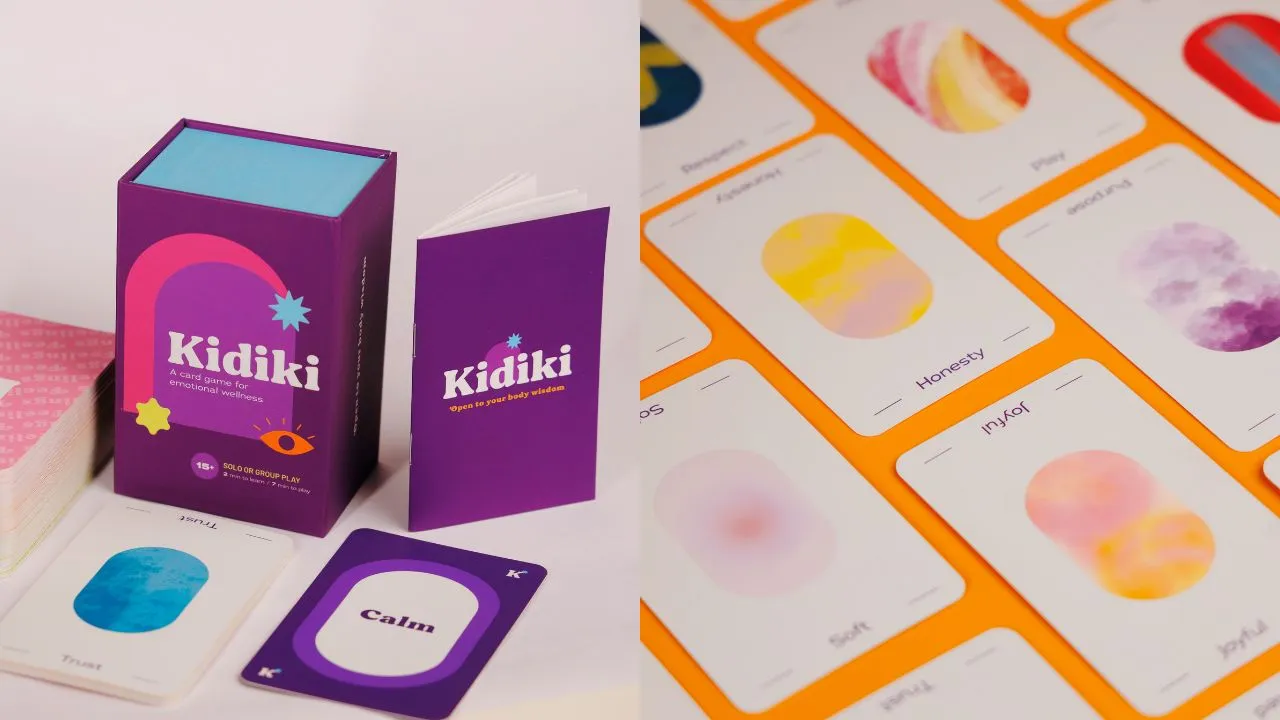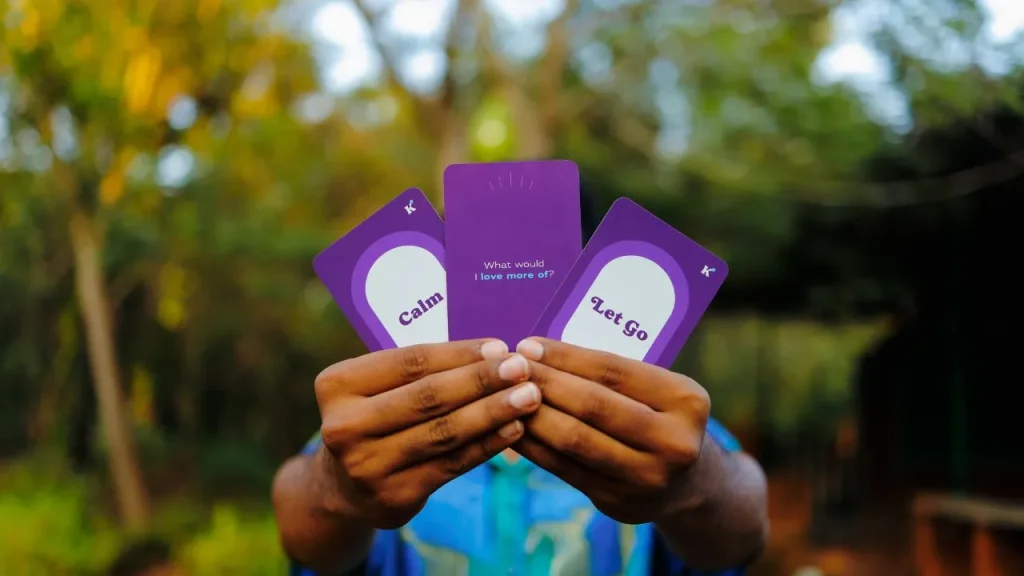When someone asks you how you are doing, your answer is probably going to be “I’m good.” But beneath that phrase could be an entire spectrum of emotions, right from joy emerging from a memory, heaviness from an old hurt, or even just the dull fog of a shitty day. Most of us don’t tend to express our true emotions because the words don’t come out right. But what if you could really express what you’re feeling? What if, instead of brushing feelings aside, you could name them, sit with them, and maybe even understand what they’re asking of you?
That is why David M Soni, a young entrepreneur from Kochi, wants people to experience Kidiki, a really simple yet effective seven-minute card game he created to help people connect with their inner world.
“It all starts with sensations,” David explains. “Everything we feel…happiness, sadness, anger, even excitement, all begins in the body as a sensation. But we’ve forgotten how to pay attention to it.”
How Kidiki all Began
David dropped out of Engineering, worked a corporate job, including helping launch Zomato in Kerala. “I was also eating out every day, gaining weight, living a lifestyle that wasn’t making me happy,” he recalls. “I had become 105 kilos, just sitting in restaurants, working, and eating.”
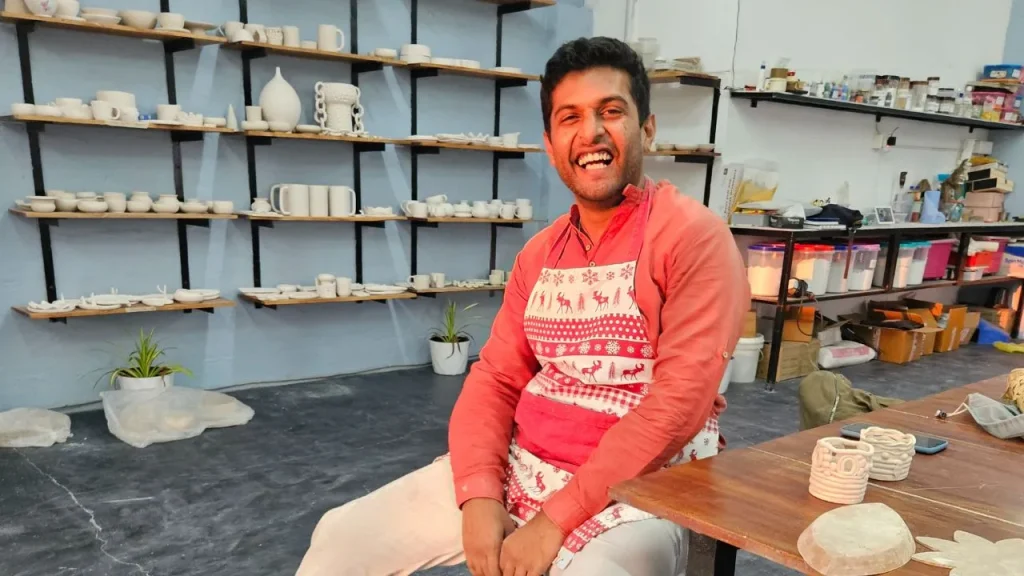
It was only after moving to New Zealand and spending time meditating with monks that he began to see the connection between body, mind, and emotions more clearly. “These monks would say, forget feelings, forget desires, and just notice what is happening in your body. That’s when I realised that sensations are the root of everything. If we can notice them without reacting immediately, we gain freedom over our emotional lives.”
Also Check Out: Multi-talented Artist Arish John from Kottayam Breathes Life into Forgotten Objects
The Act of Naming
Around this time, he also observed how monks would deal with their emotions by naming them directly. If they felt a craving, they would simply repeat to themselves, “craving, craving.” If they felt aversion, they would say, “aversion, aversion.” The act of naming the emotions they were feeling gave them distance.
David realised this was a profound yet practical act. “Just by naming it, you stop being consumed by it. If I say, ‘David is craving,’ then suddenly I am not David anymore. I am observing David.”
This practice of naming sensations and feelings became the backbone of Kidiki.
What Kidiki is all About
Kidiki is built on that insight. The deck of cards guides players through three stages: noticing sensations, naming feelings, and uncovering needs. Together, they help players move from vague moods (“I’m good” or “I’m fine”) to a more precise understanding of what’s going on inside.
“For example, if someone says they want a fancy car,” David explains, “what they might actually need is respect or acceptance. The car is just one way of seeking that need. Once you see it clearly, you can find healthier, more sustainable ways to meet it.”
A round of Kidiki unfolds like this. You shuffle the cards, keeping the three categories separate. You pick a category and ask yourself, “Does this describe what I feel, sense, or need right now?” For each card, you answer yes or no, discarding the ones that do not fit. You keep narrowing down until you have three cards from each category, nine in total. The remaining cards act as a mirror, reflecting your current emotional state.
David calls this process “an emotional scan.”
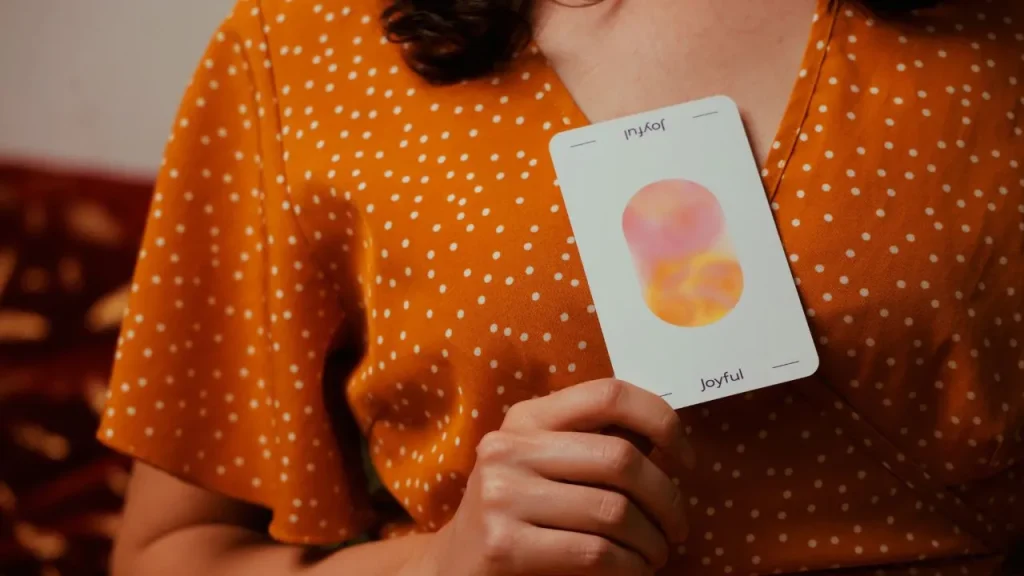
Beyond just Quick Fixes
Unlike affirmation cards or motivational slogans that give a quick high and fade away, Kidiki is meant to be practical, playful, and lasting. “I didn’t want to make something that just feels good for ten minutes,” David says. “This is about building awareness; the kind that can actually change how you experience life.”
There was one thing David said that struck a deep chord with me, though it also unsettled me because it was not how I had been taught to think about emotions. He told me, “Not every sensation has to be immediately reacted upon. If you feel heaviness in your chest, it does not always mean something is wrong. It could just be an old emotion leaving your body. By noticing without reacting, you give yourself space to respond.”
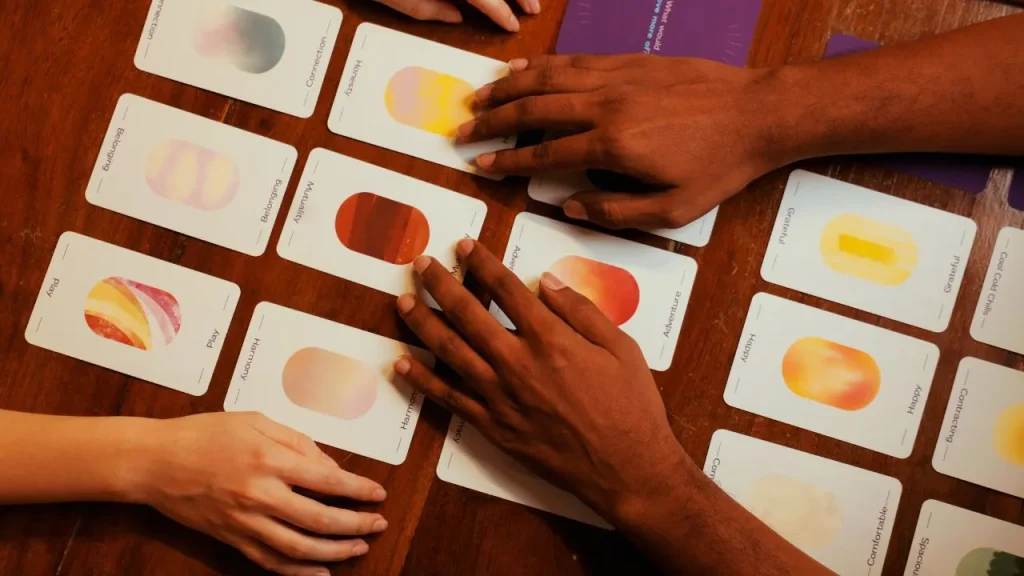
I realised in that moment how conditioned I was to believe that every feeling had to mean something, that every flicker of sadness or spark of irritation was a clue demanding interpretation. The thought that not all emotions needed to be analysed or acted upon was strangely liberating.
You Might Like: The Butterfly Factory: This Artist from Kerala makes Custom Designs come Alive through Upcycled Notebooks
Language and Culture
Another layer of Kidiki’s creation comes from David’s reflections on language and culture. He points out that in South India, people have traditionally relied more on non-verbal cues such as tone, expression, and silence rather than elaborate words. In cities, however, communication has become increasingly logical and word-heavy, particularly under the influence of English.
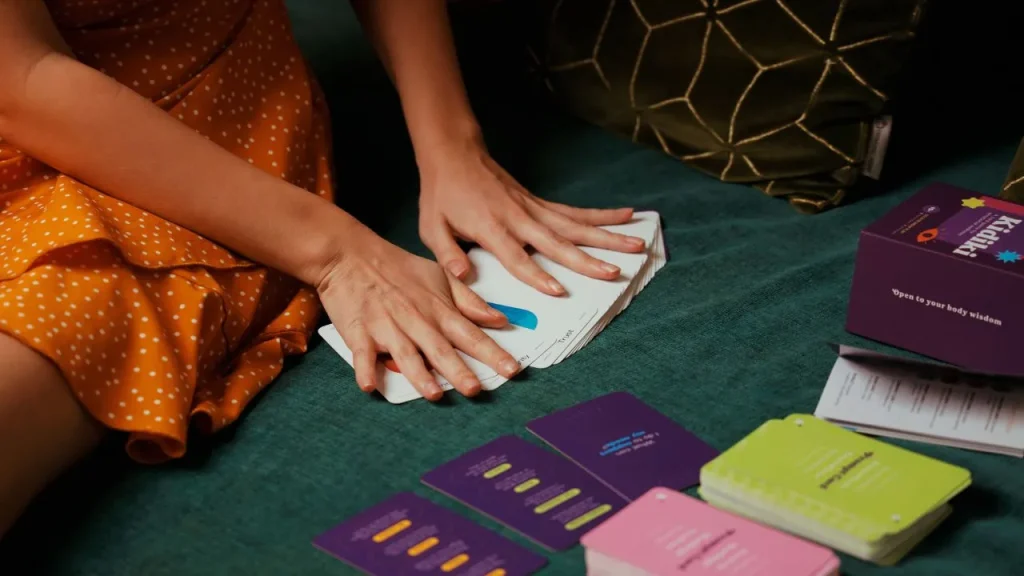
“Even in Malayalam, we have sounds that can convey emotions without words,” he says. “But now we live in a culture where words are necessary. We do not live in tribal communities anymore. We need a way to communicate emotions consciously.”
Kidiki, in that sense, is both a return to something ancient and an adaptation for the modern world. It encourages people to name what they feel, to use words as a bridge back to their own bodies.
Looking Ahead
Therapists who have tried Kidiki say it is especially useful for people who find it difficult to articulate their emotions. It gives them language and structure to begin conversations. It has also worked well in personal settings, where couples and friends use it to connect on a deeper level. For individuals, it becomes a small daily pause that can bring clarity. Of course, Kidiki does not replace therapy or deep healing, but it can act as a guide, and sometimes, a guide is enough to change how you respond to discomfort or stress.
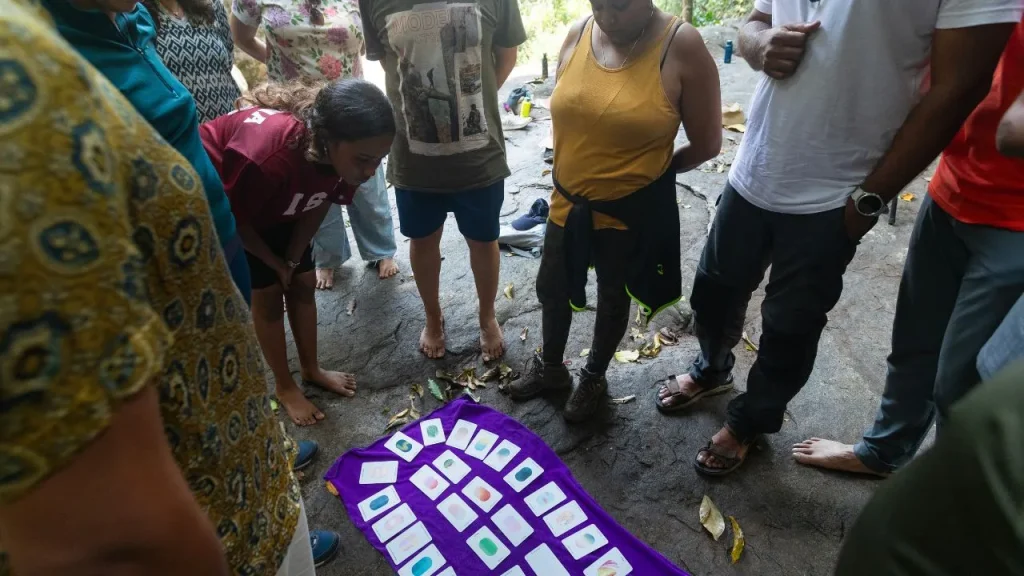
He also wants to make Kidiki available in regional languages so that more people can access it. He hopes to keep it affordable and, when possible, even make versions available for free. “Seventy to eighty per cent of our country’s population does not have access to tools for emotional health,” he says. “At some point, I want to give this away for free. Because everyone deserves mental wellness.”
A Window Inward
Kidiki, after all, means “window.” It is a window into the self, into emotions we often leave unnamed, into needs we often disguise as wants. It is also a window outward, a way of building empathy and understanding in relationships.
In those seven minutes of being with Kiduki, David wants you to see more clearly, feel more deeply, and perhaps move through your day a little more kindly toward yourself. And perhaps in that noticing lies the beginning of change.
Also Read: INDI-Q: The Party Game That’s Making Malayalis in the UK Feel Right at Home

